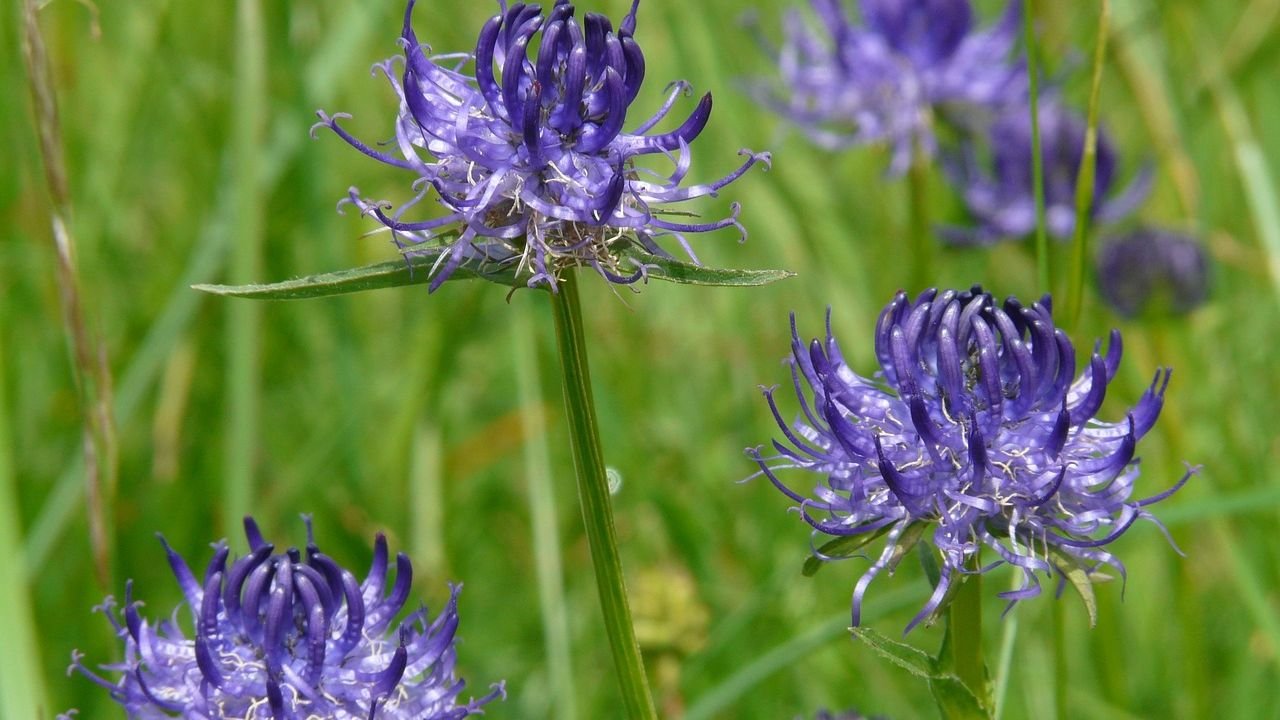The scientific name of Devil’s Claw is Harpagophytum procumbens. It is a medicinal plant deeply rooted in traditional African and European herbal medicine. It is known for its medicinal properties which are based on scientific research. In this article, we will read about it in detail.

Scientific Name
Harpagophytum procumbens
Synonyms
Grapple Plant, Wood Spider
Family
Pedaliaceae
Habit and Habitat
Devil’s claw is a low-growing perennial herb. The specialty of this herb is its distinctive claw-like fruits, from which it got its name. It originally grows in the sandy and rocky soils of the savannas of southern Africa.
Chemical Composition
Compounds like iridoid glycosides (harpagoside and harpagide), flavonoids, phytosterols, and phenolic acids are found in it.
Plant Parts Used
Its secondary tubers, or storage roots, are the primary parts used for medicinal purposes.
Properties
Ayurvedic Properties
In Ayurveda, Devil’s Claw is known for its Tiktaa (bitter) and Kashaya (astringent) taste. It is believed to pacify Vata and Kapha doshas, making it beneficial for conditions associated with imbalance.
Therapeutic properties
Innumerable medicinal properties are found in it, some of these properties are as follows:
- Anti-inflammatory properties: It has powerful anti-inflammatory properties, making it effective in managing arthritis, rheumatism, and other inflammatory disorders.
- Analgesic: Devil’s Claw has analgesic properties, relieving pain associated with musculoskeletal diseases.
- Aids digestion: It stimulates appetite and aids digestion, making it useful for individuals suffering from indigestion or loss of appetite.
- Rich in Antioxidants: It has antioxidant properties, and it helps in neutralizing free radicals and protecting from oxidative stress.
- As an Antipyretic: Devil’s Claw may help reduce fever.
- Heart Health: Its antioxidant properties protect blood vessels from oxidative damage and help reduce inflammation thereby contributing to heart health.
Uses of Devil's Claw
To take advantage of the medicinal properties of this herb, it can be used in different forms:
It can be consumed in a variety of forms, including:
- Capsules or tablets: It can be purchased in capsule or tablet form. It can be easily used for arthritis and other inflammatory conditions.
- Tincture: Its tincture can be easily used by mixing it in water or juice.
- Topical preparations: Creams or gels containing its extract can be applied directly to the affected area for local relief.
Precautionary Measures
Devil’s claw is considered safe when used as directed, but there are some precautions you should take when using it, such as:
- Women who are pregnant or breastfeeding should avoid taking devil’s claw due to insufficient safety data.
- People taking anticoagulant medications should use them with caution or should not take them without consulting a doctor as they may react with these medications causing other serious problems.
- It may cause some allergic reactions.
Myths and Facts
Let’s dispel some of the most common myths about witch hazel:
Despite its proven efficacy, devil’s claw has been the subject of some misconceptions:
Myth: The Devil’s claw is poisonous.
Reality: It is safe for most people when used responsibly.
Myth: Devil’s claw is only effective for arthritis.
Reality: Devil’s Claw is renowned for its arthritis-relieving properties, offering many health benefits beyond musculoskeletal conditions.
Conclusion
Devil’s Claw is known as a healing power of nature. It aids in the management of inflammation and musculoskeletal disorders. It is known for its rich history in traditional medicine. As with any herbal remedy, caution should be exercised when using it and should not be used without consulting a doctor.
Remember, before starting any new wellness regimen, it’s always best to consult with a healthcare professional to ensure it is suitable for your specific needs and circumstances.
Frequently Asked Question
Devil’s claw is commonly available in capsule, tincture, or liquid extract form. Its dosage may vary depending on the condition being treated. When using it, you must follow the directions on the label and consult a health care professional before use.
Pregnant or breastfeeding women, and people with stomach ulcers, diabetes, or heart disease should avoid using it. It is best to consult a doctor before using it if you have any other health problems or are taking medications.
No, It is not a sedative. It is primarily known for its anti-inflammatory properties.
Some studies have not shown significant side effects on the kidneys, but if you have any kidney problems, consult a doctor before using it.








